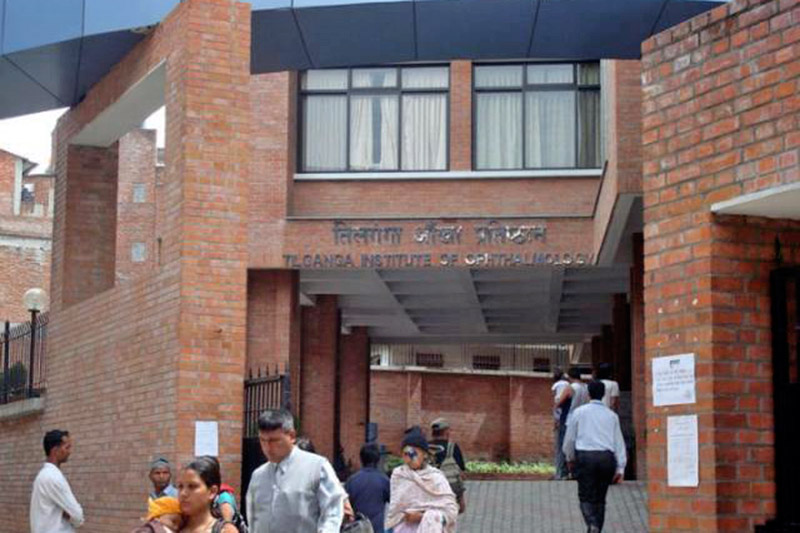75,000 persons pledge to donate cornea
Kathmandu, December 26
Over 75,000 persons have pledged to donate their cornea to Nepal Eye Bank at Tilganga Institute of Ophthalmology posthumously, while around 15,000 persons have regained their sight after corneal transplant so far.
The eye bank was established on 16 September 1994 to provide corneal transplant service in the country. As the only eye bank in Nepal, TIO has been harvesting, processing and preserving corneas for the past 25 years, read a press statement released by TIO. In the initial years, technicians would take corneal tissue out from bodies brought for cremation at Pashupati Aryaghat after obtaining permission from concerned relatives.
These days, consultants deputed from the eye bank provide counselling and information for visiting eye patients and their relatives at Bir, TU Teaching, Gangalal and Patan hospitals for cornea donation.
This has increased the number of people pledging to donate eyes after death. Regional cornea collection centres have been established in Biratnagar, Lahan, Hetauda, Bharatpur, Pokhara, Lumbini and Kailali.
According to TIO, Nepal is self-sufficient in corneal transplant.
There was a time when corneas used to be brought to Nepal from foreign countries for transplant, but now they are collected from within the country. Corneal tissue is usable for up to four days when kept under appropriate conditions, according to Dr Reeta Gurung at TIO.
Tilganga Institute of Ophthalmology is set to organise a mass condolence meeting on Tilganga premises on Saturday to pay tribute to people, who donated their eyes posthumously.
“The special memorial service aims to encourage more people to pledge cornea donation, and share experience of persons who benefited from corneal transplant,” said Dr Gurung. The eye bank has been supported by the International Federation of Eye and Tissue Banks and complies with the standard set by the international organisation. Nirmal Lama (a late political leader) and Kedar Man Bethit (a late literary figure) were pioneer eye donors, who inspired others to follow suit.
Corneas might be damaged due to birth defects, injury and haphazard use of orthodoxical treatment, resulting in the loss of vision, read the statement.






